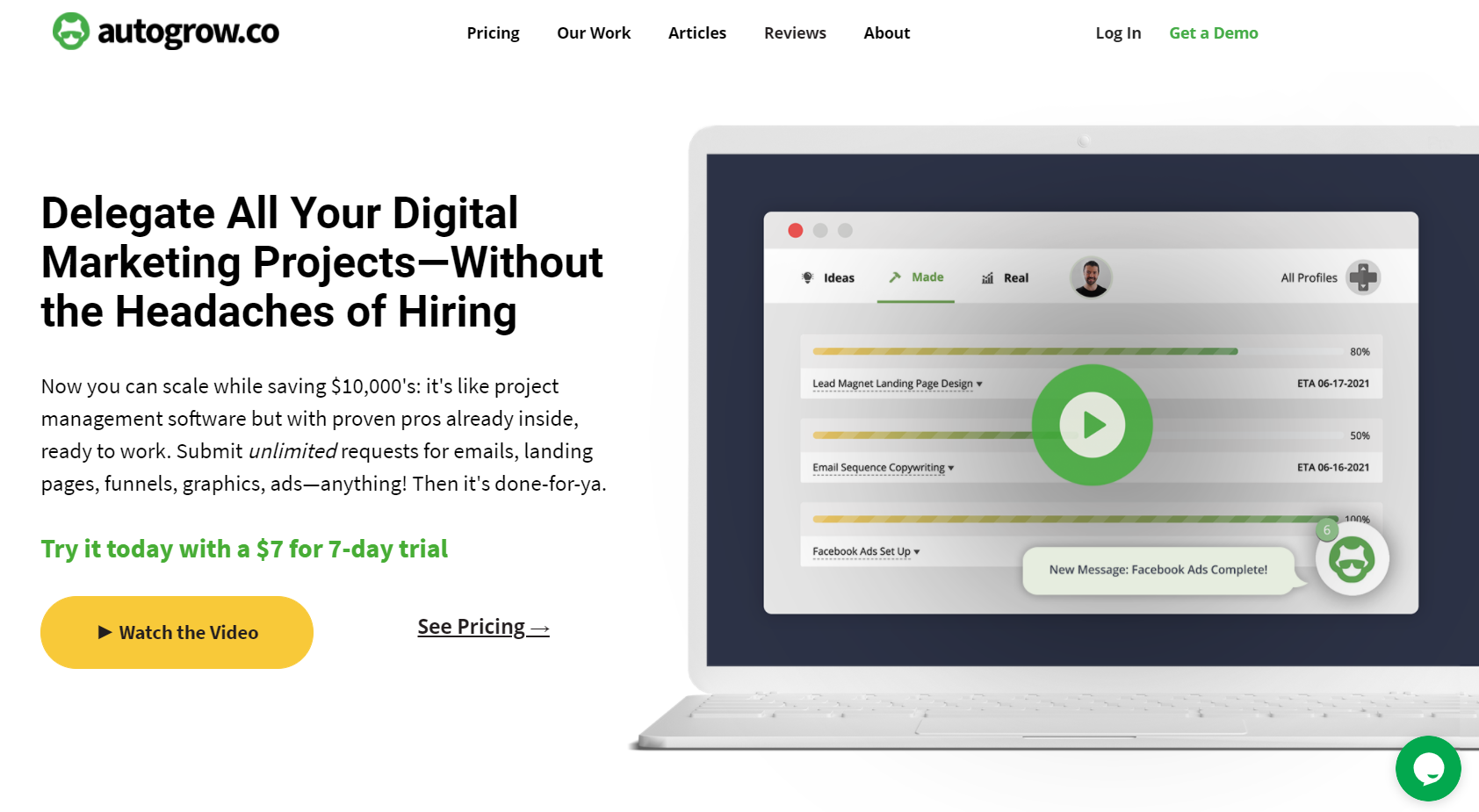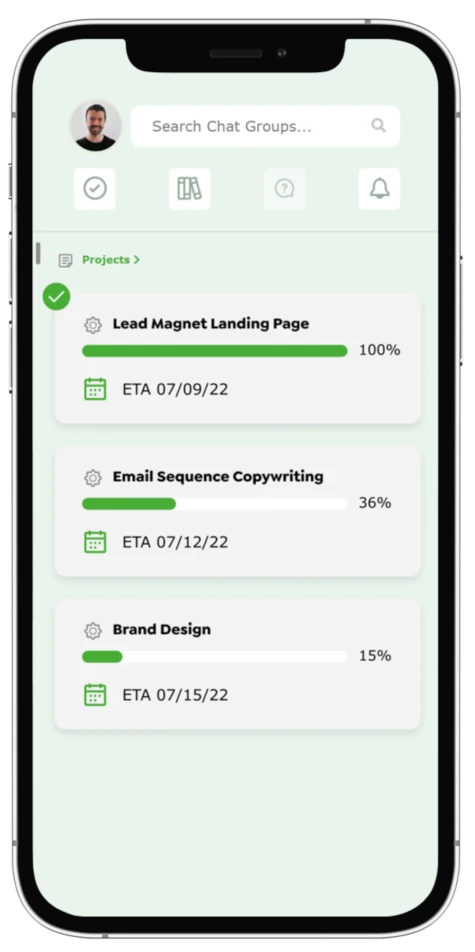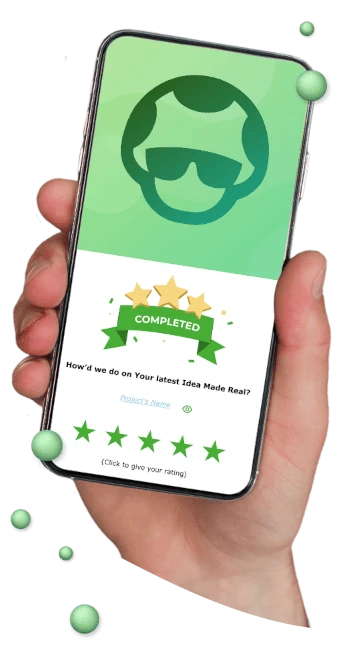How to Hire Better: 23 Questions for Recruiters’ Interviews

86% of organizations are conducting virtual interviews to hire candidates during the coronavirus outbreak according to a survey by Gartner.
As data shows, virtual interviews are your ticket to attracting great talent during the Corona Age.
But coming up with the right recruiters’ interview questions to make the best hiring decisions for your business? Well, that can be stressful.
What to ask? What not to ask? When to ask?... There’s too much you need to handle.
Because you just want to walk into the Skype or Zoom room feeling prepared. And walk out with a clear understanding of the candidate’s potential at your company.
That’s why in this article, I’ll tell you:
- What 23 interview questions you should ask applicants to get the answers you need to hire business-driven people.
- How candidates’ answers can help you make smart (or dumb) hiring decisions.
- And how you’ll be able to weed out the candidates who aren’t a fit.
Here are the questions we ask applicants in our interviews and that have helped us hire only great talent...
1. What Can You Tell Me About Yourself?
This first question will simply set the stage for your virtual interview.
And if you’re looking to be friendly and not scare the applicant off, then showing interest in them is the best move.
You see, when applicants are being interviewed by a recruiter, they often feel anxious.
And in fact, one survey from Harris Interactive and Everest College shows that 92% of adults in the United States stress over one or more aspects of a job interview.
So for breaking the ice and making an interview not be so formal, ask your candidate a bit about their personal background.
Personal hobbies, interests, dislikes—anything that will warm up the conversation.
2. Why Did You Apply for This Position / What Attracted You From This Position?
By asking this question, you’ll be able to gauge your applicant’s real intentions for applying for the position.
You’ll be able to quickly see if they show enthusiasm for the job opening. Or if they just applied randomly with no real interest beyond being hired.
You see, 62.5% of job seekers apply for positions that are likely not a fit for them according to Talentegy.
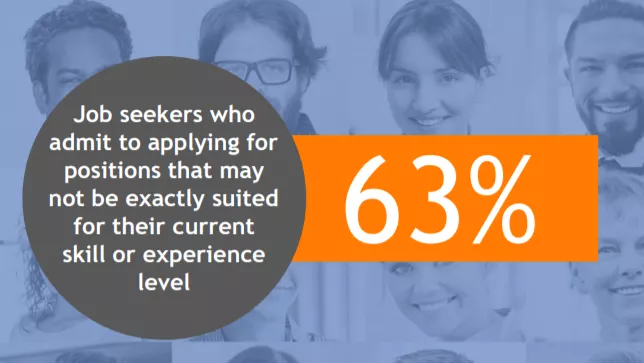
So this question is key to understanding the reasons behind each applicant applying for your job opening and weeding out the ones who aren’t genuinely interested.
3. What’s Your Work Experience?
This question is a must.
You need to know what professional background information any potential hire has had.
This is important because unless you’re filling an entry-level role, you’ll want a candidate who has experience performing the tasks your position demands.
For example, if you’re looking to hire a Quality Assurance Specialist or a Content Writer (which we’re hiring btw), you would not hire someone who’s had experience as a chef.
Makes sense, right?
Applicants’ work experience matters. And it matters even more than their education experience.
4. How Did You Find Out About This Job Opening?
As a busy recruiter, you may have posted your job ad in different affordable and free job posting sites.
But if you want to skip the hassles of hiring, then we can give you a hand.
AutoGrow takes care of your hiring process while you delegate any digital marketing task to us.
Too good to be true, right?
Well, sometimes hiring can be a pain in the a$% and it can get difficult to manage all the application forms, skill tests, etc.
Especially if you’re also posting your job ads on your website and on a dedicated landing page like we do, it gets difficult to track applicants.
Luckily, there are top Applicant Tracking Systems you can rely on for your hiring process steps.
So if an applicant is really interested in your company when applying, they’d probably remember where they saw the job opening.
And this will help you keep track of how and where applicants found out about your job opening—via referral, email, career pages, or job posting sites.
5. What Did You Like the Most About Your Previous Job? And What Did You Like Least About It?
Ask this question in your recruiter's interview to determine if the applicant would likely enjoy the work at your company.
By them letting you know what things, responsibilities, or specific tasks they liked about their previous job, you’ll be able to determine if they’ll be a fit for your company.
And it’s important to make sure applicants find your hiring system and work satisfying. This is an important factor in improving your candidates’ experience.
In fact, applicants who are satisfied with their candidate experiences are 38% more likely to accept the job offer according to IBM.
6. Why Did You Leave Your Last Job? (If They’re Currently Not Employed) / Why Do You Want to Leave Your Current Job? (If They’re Currently Employed)
You want to find out the reason why applicants are eager to leave their current job or why they left their former work.
Why?
Because why not?
You want to know what pushed them to leave their previous job and apply somewhere new.
Is it a career change? Is it because of a conflict with a colleague? Were they fired because of inappropriate behavior?
If you’re looking to hire someone, knowing what happened at their previous or current job can simply help you avoid bad hires.
7. Has There Been a Time When You Had a Disagreement or Problem at Work? If So, How Did You Handle It?
This question for a recruiter’s interview is important because you’ll know the applicant’s abilities to deal with a conflict or problem.
Because listen, there’ll always arise problems where you’ll need someone to step up and handle the situation until it’s resolved.
You need problem-solvers.
But problem-solvers are hard to find.
In fact, the top missing soft skills that companies look for are problem-solving and critical thinking according to SHRM.

And it’s no wonder that the top traits or skills employers look for according to NACE are:
- Critical thinking / problem-solving (80.9%)
- Teamwork / collaboration (78.7%)
- Professionalism / work ethic (70.8%)
- Oral / written communications (67.4%)
But this question will give you a hint on how applicants could potentially solve a particular issue.
It’ll show you if they were able to handle the situation appropriately or if they were unprofessional.
Remember, emotional intelligence is needed in almost every job.
8. Tell Me About a Time When You Had to Use Your Skill Set to Achieve a Goal or to Solve a Specific Problem
45% of employers say they can’t find the workers with the skills they need according to Manpower Group.
And this question can be a good opportunity (or a red flag) on finding out if your applicant has been able to solve a particular problem using a specific skill set.
According to a survey by ManpowerGroup, 45% of employers are concerned about finding employees with the necessary skills and talents.
And 69% of employers are having difficulty filling job positions.
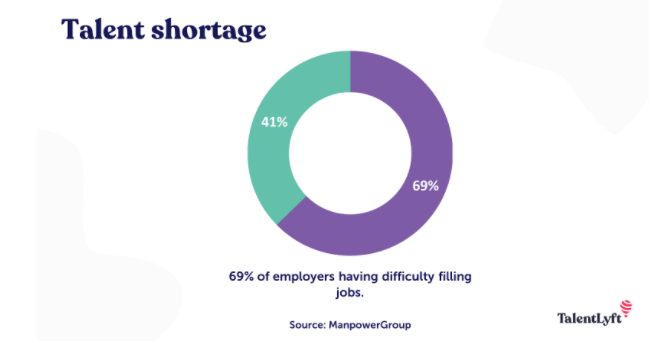
Additionally, 67% of recruiters say their biggest challenge in hiring is the lack of skilled and high quality candidates according to Jobvite.
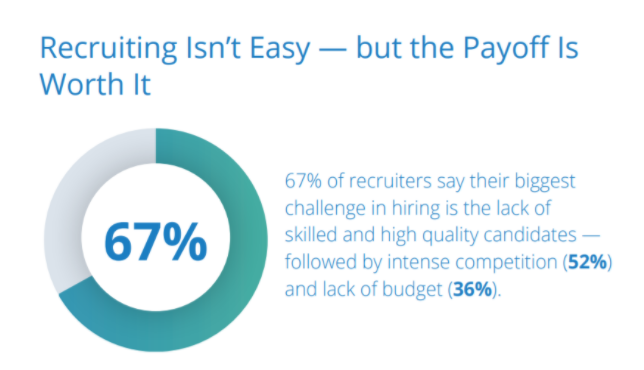
So this question can be a good indicator if the applicant possesses a good set of skills and knows how to use them properly.
9. What Types of Projects Do You Enjoy Working on?
This question will help you know your applicants’ preferences in terms of what they’d like working on.
There may be different projects the person filling out the job opening will have to handle. So it’s important to know which ones your candidates would enjoy working on the most.
10. Are You a Solo or Team Player?
Ok so there’s no right or wrong answer here.
Don’t assume that if an applicant tells you they’re a solo player, they won’t do a good job in their role.
Their answer will simply give you a better sense of the applicant’s work preference.
And it’ll help you know where and in which areas of the company they might be a better fit for.
So this question will help you determine if they’re suited to the types of assignments they’ll receive once hired.
Because someone who prefers solitary and uninterrupted work may not thrive in a position that requires a lot of teamwork.
But as long as the applicants are flexible and willing to do the opposite of what they prefer (solo vs. team), these could be the best professionals to hire.
11. Do You Have Any Questions About Compensation?
Applicants need to know what the compensation looks like in order to decide whether or not to move forward down your hiring funnel.
And the interview is the best moment to clarify any questions.
You see, about 31% of the talent professionals who don’t currently share a salary range say they worry it will make the interview dwell too much on pay according to LinkedIn.
And 34% of talent professionals who don’t currently disclose salaries say they’re concerned it will limit negotiations according also to LinkedIn.
On top of that, 60% of job seekers report being at least somewhat comfortable negotiating, up from 51% who felt so in 2018 according to JobVite.
So ask applicants if they have any questions about compensation.
They can’t blindly accept a job without knowing how much they’ll be compensated for.
12. Why Are You Making a Career Change?
It’s always important to know about your applicants’ goals, plans, and what moves them to make decisions.
So this question will tell you a bit more about what motivated them to make a career shift and apply for your job opening.
13. What Steps or Checklist Do You Follow to Ensure You Meet the Commitments of Your Role?
You want to work with someone responsible, someone passionate and truly committed to your company.
For instance, you need to know how applicants will ensure they’ll comply with the work assignments.
For this, ask them what sort of steps they’d take, or if they’d follow a checklist in order to not miss any important point of their assignments.
14. Can You Provide Me With Personal & Work References?
Even if an applicant looks great on paper, you gotta know what their former employers and relatives/friends think about them.
This might give you a better sense of their personality and their work ethic.
So even if you create the perfect skill assessment test template and the applicants score really high, always always ask for work and personal references.
15. Why Do You Want This Job?
With this question for your recruiter’s interview, you’ll find out what are your applicants true motivations for getting the job.
Do they really want to be hired for this position? Do they really want to be part of this organization? Are they business or money-driven?
You need to know the answers to those questions in order to actually hire anyone.
Because if, for example, they tell you they just want to make money, then they’ll probably not be interested in growing your business. They’ll probably be interested in growing their bank account.
So make sure you hire someone who sells himself/herself on why he or she wants to be hired.
16. Why Do You Think You Are the Right Candidate for This Job?
Time to sell themselves!
If your applicants have made it through your entire recruitment and selection process, then they gotta prove to you how worthy they are of being hired.
They need to persuade you on why they would be a great fit for any of the, for example, 9 digital marketing experts you need in your virtual team.
It’s time for them to convince you why they would be the right candidate for a specific role.
17. We’re Looking to Work With Someone for the Short-term (or Long-term), Does This Match Your Expectations?
You’ll meet applicants who are not looking for work stability.
And you’ll come across candidates who are interested in working for your company for the long term.
So whatever it is your job opening demands (a short-term or long-term contract), you must find out if your candidates are on the same page.
18. What Do You Know About Our Company?
This is where lots of applicants fail.
They fail because they don’t know squat about 1) the job opening they’re applying for and 2) the company they’re trying to be hired at.
For instance, if someone is truly interested in working for your company and helping you grow your business, they’d know enough about your company.
They’d research at the very least who’s behind the brand, what industry is your business in, the work culture, etc.
But sadly, with all the easy access to information out there, some candidates don’t even bother researching basic stuff. Probably because they’re not engaged or interested.
3 in 4 employers say it’s easier to attract top talent when the candidate knows about your organization according to CMD Recruitment.
So lack of preparation for the interview and lack of research could mean they didn’t put enough time or effort.
19. What Is the Biggest Challenge From this Role?
You want to dig a little deeper on what this job role represents for the applicants.
Is there a challenge they’d face by filling in the vacancy?
With whatever information your candidates have about the job position, they should be able to tell you any potential challenges associated with the role.
After all, you want proactive team members who can provide insights, ideas, and challenges they’d face to help grow your business.
20. Why Do You Want to Work Remotely?
It is estimated that there will be an increase of 50% in the number of remote employees this year according to MarketWatch.
Nearly two-thirds of U.S. companies have employees that work remotely. And more than 35% of the U.S. workforce are freelancers according to Forbes.
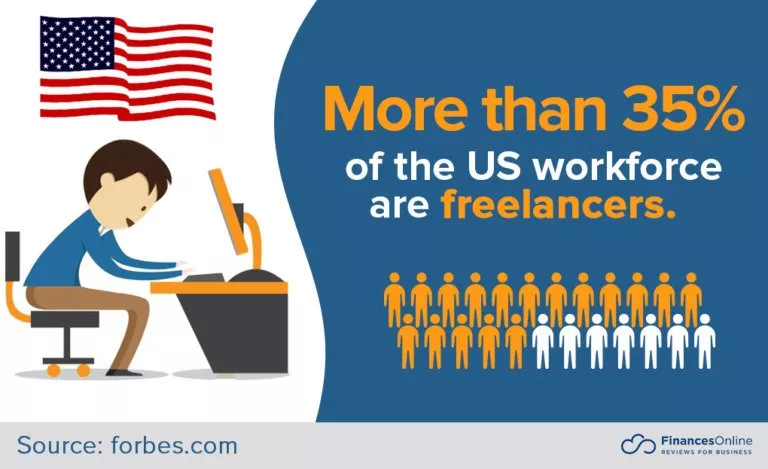
On top of that, research shows that remote work will equal, if not surpass, fixed office locations by 2025 according to CNBC.
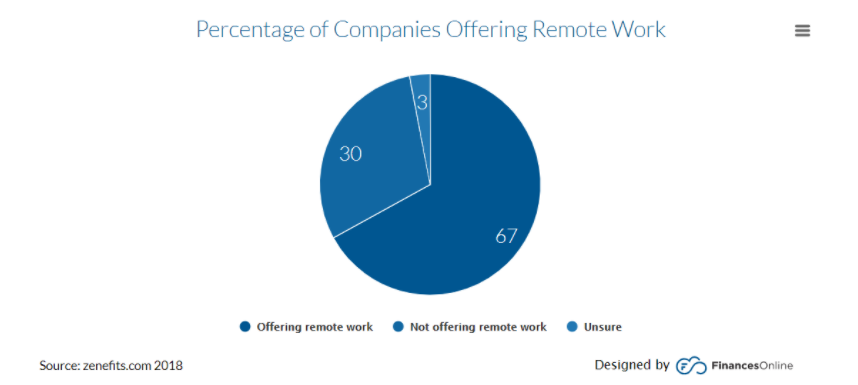
As data shows, remote work is ruling the hiring process worldwide.
But not everyone wants to work remotely for the same reason.
Some people are stay-at-home parents, or others may have health conditions that keep them out of the office.
Or others may you just want to have the flexibility to travel the world while working.
So whatever their reasons for working remotely are, they should all benefit your company.
This means, if someone is just lazy and wants to work from home to work less, then that person won’t be a good fit.
21. What Skills & Strengths Will You Bring to This Position?
The ability of a candidate to talk about their strengths and skills and still maintain their humility is a great indicator of a winning personality and someone who’ll likely be a fit.
So you want to look for someone who can demonstrate their skills and how worthy they are of being hired.
The goal of this question is to find out how insightful an employee can potentially be about his own performance.
22. Can You Describe How You Handle Tight Deadlines?
Do your team members often face challenging time constraints?
Do you need someone who can work under pressure?
Then ask this question during your recruiter’s interview to find out how they handle stress and whether they can keep up with the pace of work at your organization.
Also, ask them if they’ve ever missed a deadline and, if so, how they handled the situation.
23. Do You Have Any Questions for Me?
This question will likely wrap up the interview. So pop it at the end of your call.
Most candidates who are genuinely interested in the job position will be prepared with a few questions for you.
But if the conversation was super clear and detailed, then the candidate may not have any questions.
And in a case like this, it’s ok if your candidate doesn’t have a list of questions at the end of the interview.
But always follow our hiring hacks to improve your candidates’ experience.
Because 63% of job seekers claim they are often left dissatisfied with the lack of communication throughout the application process.
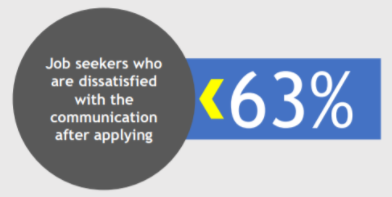
And over 60% of job candidates could share a negative candidate experience with their friends and family according to Talent Board.
So remember, if you don’t provide a great experience for your candidates throughout your hiring funnel, 69% of those applicants would rarely or never reapply.
So pose this question so the more interested applicants can share the questions they wish to ask.
Conclusion
Walking into your interview feeling confident you’ll attract only great talent is possible.
And walking out with a clear understanding of the candidate’s potential at your company is completely doable when you ask them the questions outlined in the article.
Because the answers they provide to you during your interview will help you determine if they’ll be a good fit for your job opening or not.
All you have to do is listen carefully to what they have to say.
And if you want to skip the hassles of hiring, AutoGrow is here for you.
You can delegate any digital marketing task to us while we take care of hiring.
And especially if you’re an agency facing growth challenges, then you’ll be a great fit for our service.
Now tell something, what are the most common questions you ask applicants when interviewing them?
Let me know in the comments below.
Keep AutoGrowin’, stay focused.




